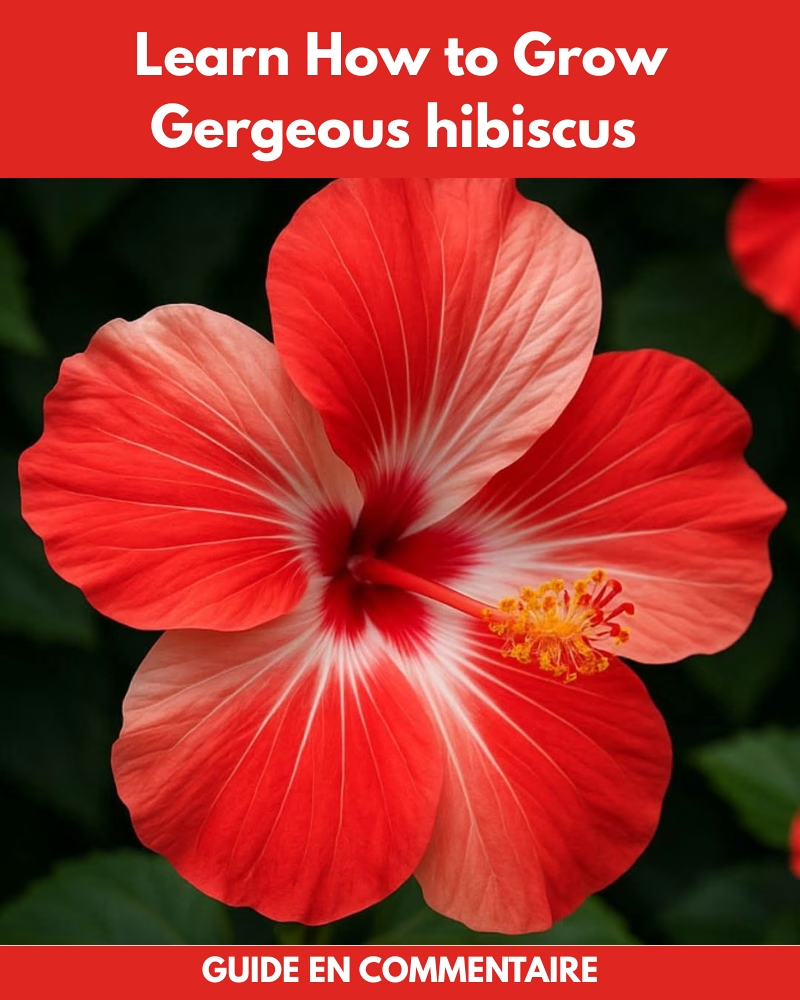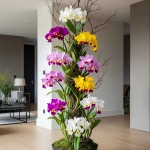Hibiscus plants are among the most spectacular flowering plants you can grow, offering vibrant, showy blooms that transform any garden into a tropical paradise. Whether you’re dreaming of hardy hibiscus surviving harsh winters or tropical hibiscus gracing your patio, this comprehensive guide will teach you everything you need to know about growing gorgeous hibiscus plants successfully.
What Makes Hibiscus Plants So Special?
Hibiscus plants belong to the mallow family and are renowned for their large, trumpet-shaped flowers that can reach up to 12 inches in diameter. These stunning blooms come in virtually every color except true blue, ranging from classic red and pink to exotic purples, yellows, and multi-colored varieties. The flowers typically last only one day, but healthy hibiscus plants produce new blooms continuously throughout their growing season.
Understanding Different Types of Hibiscus
Hardy Hibiscus (Hibiscus moscheutos)
Hardy hibiscus, also known as rose mallow or swamp hibiscus, are perennial plants that can withstand freezing temperatures. These robust plants die back to the ground each winter but return with vigorous growth each spring. Hardy hibiscus varieties produce some of the largest flowers in the plant kingdom, with blooms often measuring 8-12 inches across.
Key characteristics:
- Cold hardy to USDA zones 4-9
- Flowers from mid-summer to first frost
- Heights ranging from 3-8 feet tall
- Excellent for permanent landscape plantings
Tropical Hibiscus (Hibiscus rosa-sinensis)
Tropical hibiscus are evergreen shrubs native to warm climates that cannot tolerate freezing temperatures. These plants offer the widest variety of flower colors and forms, including single and double blooms, ruffled petals, and exotic color combinations.
Key characteristics:
- Hardy only in USDA zones 9-11
- Bloom year-round in warm climates
- Can be grown as houseplants or container plants
- More diverse flower colors and forms
How to Plant Hibiscus Successfully
Choosing the Perfect Location
Hibiscus plants thrive in full sun to partial shade, requiring at least 6 hours of direct sunlight daily for optimal flowering. While they can tolerate some shade, insufficient light results in fewer blooms and leggy growth. When selecting a planting location, consider these factors:
Sunlight requirements:
- Minimum 6 hours of direct sunlight
- Morning sun with afternoon shade in extremely hot climates
- Protection from strong winds that can damage large blooms
Soil considerations:
- Well-draining soil is absolutely essential
- Slightly acidic to neutral pH (6.0-7.0)
- Rich, organic matter improves flowering
- Avoid waterlogged or compacted soils
Preparing the Soil for Hibiscus
Proper soil preparation is crucial for growing gorgeous hibiscus plants. These plants prefer fertile, well-draining soil enriched with organic matter. Here’s how to prepare your planting area:
- Test your soil pH using a digital pH meter or soil test kit
- Improve drainage by adding compost, aged manure, or perlite to heavy clay soils
- Enrich the soil with 2-4 inches of compost worked into the top 12 inches
- Create raised beds if your garden has drainage issues
- Amend acidic soils with lime if pH is below 6.0
Planting Hardy Hibiscus
Click on “Next” to continue reading.


